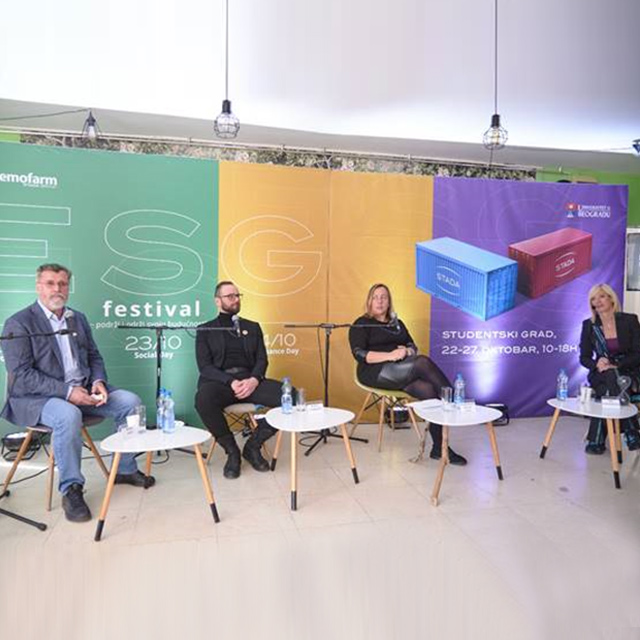Transparency in the Healthcare System, National Unity, and Church Support are Key to Increasing the Number of Donors in Serbia

The effects of campaigns aimed at raising awareness about the importance of organ donation and transplantation often fall short on the ground, as only one-third of patients confirmed to have suffered brain death become donors, it was stated at the panel discussion titled “The Most Important Call in Life: Why It’s Important to Be a Donor?” organized by the Hemofarm Foundation.
Dr. Aleksandra Plećaš Đurić, the national coordinator for organ transplantation at the Vojvodina Clinical Center, mentioned an example from last week when there was no family consent for organ donation in three consecutive cases of brain death over three days. This occurred during the week we continued our organ donation campaign, “The Most Important Call in Life.” She has added that when families agree to organ donation, they believe it is what their deceased loved one would have wanted, finding comfort in that belief. “They truly believe they are performing a humane and noble act, despite the difficult moment in which such a question is posed to them. When they refuse, they often say they have never even discussed it,” Dr. Plećaš Đurić noted.
In addition to clearly defined medical procedures, there is a regulation that outlines the determination of brain death, she explained, emphasizing the need to distinguish between coma and brain death. Brain death is determined and confirmed; it is the death of the organism, Dr. Plećaš Đurić stated, highlighting that only a well-treated patient can be a donor in such a procedure. The fear that someone will not receive proper treatment so their organs can be transplanted is unfounded, she reiterated.
Nikola Stanojević, a participant in the campaign “The Most Important Call in Life,” whose family consented to donate the organs of a family member – his grandmother – stated that this decision saved four lives. He explained that his grandmother was a healthy, active woman who suffered a traffic accident in 2015, after which she fell into a coma and subsequently was declared brain dead. “You find yourself in a strange situation where the heart is still beating, but the brain is dying,” he said, noting that his family contacted the Niš Clinical Center to donate her organs, resulting in the successful transplantation of both kidneys, the heart, and the liver. Stanojević mentioned that his family had the opportunity to speak with a priest, and his experience shows that the church has never been opposed to organ donation. “Our experience is that the priest had a more positive attitude than some other people in our surroundings,” Nikola said, adding that the issue often lies “at the level of awareness and concern about what others will think.” He concludes this from his own experience and the judgments faced from neighbors and some family members.
One of the partners in the campaign “The Most Important Call in Life”, Veran Matić, founder of the B92 Fund, has stated that he always carries a donor card with him, even though it is no longer valid, and that he is a voluntary blood and bone marrow donor. He recounted once asking a president of this country, whose name he would not disclose, why he did not have a donor card, after which it leaked to the media that he had posed that question. This led to the rumors suggesting that someone might “run over” someone to take “their organs”, Matić illustrated, adding that our political and social elites have not matured enough to prioritize the matters such as organ donation. He cited the example of the Spanish king who signed a donor card to support the transplantation program in that country.
Matić also mentioned that if he did not have a donor card, he would write on a piece of paper that he wishes to donate his organs to ease any dilemmas for his family, doctors, or recipients. According to him, transparency in the healthcare system is crucial to eliminate any doubts about the transplantation process. Matić believes it is essential for the Holy Synod of the Serbian Orthodox Church to take a clear stance on organ transplantation, responding to a statement from Tuesday in which the church indicated that it “agrees with organ transplantation, provided that the donor has voluntarily bequeathed their organs and that the donor's family has given their consent posthumously.” While this may not immediately create a shift, he asserts that it is necessary for healthcare professionals to advocate for such causes, especially through personal stories.
The Hemofarm Foundation, in partnership with the Ministry of Health of Serbia, the patient association “Together for a New Life,” “Donation is Heroism,” “PAN Transplant,” and in cooperation with the B92 Fund, has continued its campaign to increase the number of donors and transplantations titled “The Most Important Call in Life” by installing 2,000 hourglasses in Republic Square, signaling that “time is running out” for about 2,000 people on transplant waiting lists. Campaign ambassadors include individuals who have consented to donate the organs of a deceased family member, patients awaiting organ transplants, or those who have received transplants, as well as doctors who highlight the significance of this issue and the importance of organ donation in order to increase the number of donors and save the lives of around 2,000 individuals, including approximately 40 children, who are waiting for transplants.